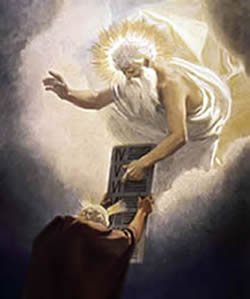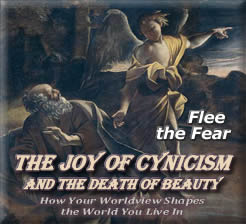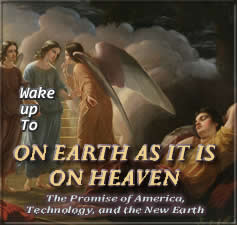Some Foreword Thinking (Cont’d)
The Unfolding Drama
In 1650, Archbishop James Ussher published one of the most influential biblical chronologies ever set forth as the unassailable word of God. By using texts in The Book of Genesis, together with other passages from Scripture, Ussher calculated that the world was created on the 23rd day of October, in the year 4,004 B.C. To this day, most Christians would never think to dispute such a finding, and if ever challenged would undoubtedly defend this “fact” to the death, not knowing why, other than that it had been included in so many copies of their Bible. But sadly, as well-intentioned as these defenders of the faith are, they may, upon further review of all things scriptural, actually be defending a proverbial Trojan horse.
Nearly lost to history is the knowledge that long before Archbishop Ussher offered his chronology as the “gospel truth,” there was already another chronological system that had been universally accepted for the first fifteen centuries of Christendom. This chronology, derived from The Septuagint Bible, adhered to a 5,500-year period from the Fall of Adam to the Advent of Christ. And though it had withstood the test of time for so many centuries, it ultimately fell victim to one of the most ironic twists in history and was replaced by a more politically correct translation, which influenced all subsequent versions of The English Bible as we know it today. So, with The Septuagint having been officially relegated to the dustbin of apocryphal literature, the way was unwittingly paved for Ussher’s “new and improved” chronology—one that most biblical scholars will admit is at odds with every known historical account, both Jewish and Christian.
Story Continues Below
To hear Kent talk about the little-known biblical prophecy, which speaks of the 5,500-year chronology from Adam to Christ, with Zen Garcia, the host of the Internet talk show Secrets Revealed, CLICK BELOW.
Story Continues From Above
Of course The Septuagint was not the first book to have suffered the wrath of ecclesiastical scorn. Included in the halls of the similarly excised were such legendary texts as those ascribed to Enoch, the man who famously walked and talked with God. And though one can assume that the truths conveyed in that conversation might be of great interest, this natural human curiosity was summarily short-circuited when religious authorities, declaring these books unsuitable for common folk, banned them. Such are the perpetual tug of wars—theologically-speaking—that have plagued the entire history of The Bible so that what was once perfectly acceptable is almost overnight deemed an object of holy revulsion. As a result, many of the world’s most revered manuscripts, rejected and suppressed, have sadly been lost to history forever … or so it would seem.
It is to the tumultuous story of these lost books, lost chronologies, and lost truths, then, that this work will turn in an effort to shed new light on what I believe to be the ultimate tale of God’s intention toward humanity. To do so, this book—unlike any other that deals with such subjects as scriptural interpretation, biblical chronology, and religious artifacts—will not only offer evidence from history but also from the very books that have, down through the ages, generated so much derision and controversy. By analyzing the historical and theological validity of texts like those penned by the likes of Enoch, the scribe, as well as inviting the reader to peruse several of them in their entirety, Tales of Forever will provide a unique window into our biblical past. And in the process, even the layperson will be able to judge for themselves what has, for so very long, been the exclusive domain of the elite and the scholar, the esoteric and the clandestine.
Consequently, readers will find themselves on an unprecedented journey in which the traditional notions concerning the so-called “Lost Books of The Bible” are turned completely upside down. What appears to be one of the great failures of history will, within the pages of this book, be portrayed not as having occurred in spite of God’s best efforts to reveal His truth but as a direct result of His desire to hide it. No doubt Solomon had this in mind when he uttered his proverb: “God in His greatness has concealed many things, while kings have the honor of discovering them.”1 Simply put, in order to fully apprehend the manifold truths of Scripture—particularly as they pertain to the five sacred things and the proof of God’s control and faithfulness that they convey—one must come to grips with a peculiar paradox: In the course of the unfolding drama of history, God has made it abundantly clear that He is far less concerned with how obvious He has made the truth than with how artfully He has hidden it in plain sight.







